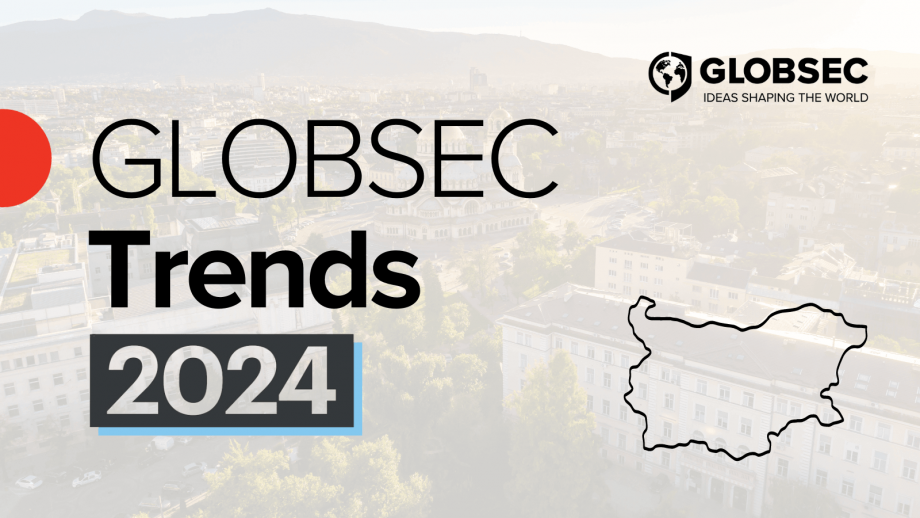GLOBSEC Trends 2024 Bulgaria

In 2024, the views of Bulgarians continue to show a complex mix of old and new stances, as observed in the latest GLOBSEC Trends report. The core elements from 2023 persist, with a strong commitment to EU membership coexisting with pro-Russian sentiments. This dual alignment reflects ongoing ambivalence in public opinion, particularly regarding the conflict in Ukraine, where Bulgarians are hesitant to assign clear blame.
Alongside these longstanding views, there's a notable shift towards more pro-Atlanticist attitudes this year. Bulgarians are showing increasing trust in the media and expressing lesser dissatisfaction with their government. Incremental but significant support is also rising for NATO membership and the view of the United States as a vital strategic partner. Furthermore, the public is perceiving greater media freedom and a strengthening attachment to democracy, signaling a positive shift in the democratic engagement of the population.
However, these Euro-Atlantic commitments are nuanced by specific local attitudes. Bulgarians appreciate the practical benefits of EU and NATO membership but often view these institutions through a utilitarian lens rather than a values-based perspective. There's also a persistent inclination towards authoritarian governance, with many not viewing Russia or China as definitive threats.
The survey data reveals another trend: many Bulgarians show a significant lack of certainty and knowledge about various political and global issues. This is particularly evident from the high rate of "don't know" responses, especially among topics like the nature of liberal democracy and international roles of significant players like China. This uncertainty is most pronounced among the country's youth (ages 18-24), likely influenced by declining educational standards.
Youth attitudes generally align with broader societal views, showing no marked preference for more democratic or Western-aligned positions. On a demographic level, the significant divide in attitudes occurs across different regions rather than between urban and rural settings, with the Northeast region of Bulgaria notably more democratic and pro-Western.
This data was collected as part of a comprehensive analysis conducted by the Institute for Global Analytics, which surveyed attitudes in nine Central and Eastern European countries, including Bulgaria. The survey was carried out via computer-assisted telephone interviewing (CATI) from February 10 to February 27, 2024, with a representative sample of 1,000 Bulgarians based on gender, age, education, residence, and settlement size.
For more detailed insights into the evolving public opinion trends in Bulgaria and other Central and Eastern European countries, read the full briefing paper on Bulgaria prepared by the Institute for Global Analytics and the full GLOBSEC Trends 2024 report here.